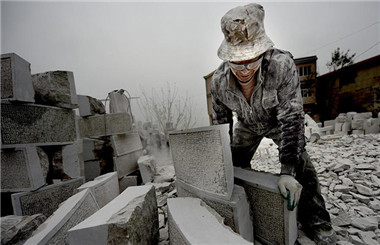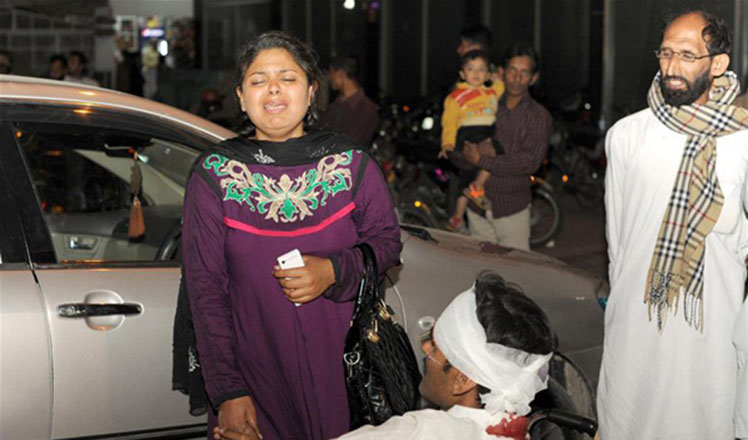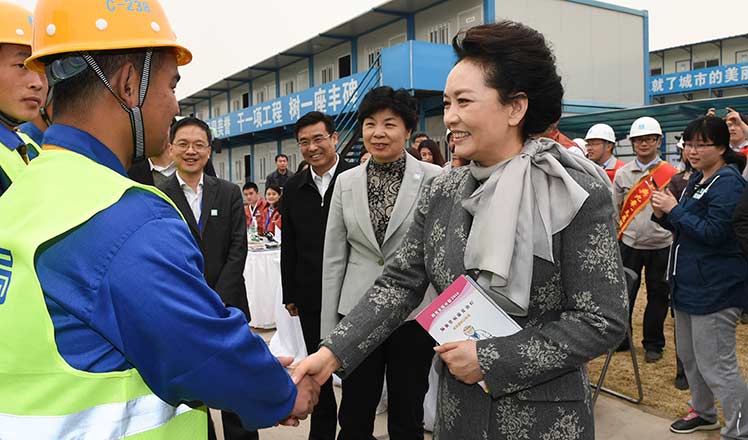Chinese community mixed on data bill
Updated: 2016-03-28 10:48
By Lia Zhu in San Francisco(China Daily USA)
|
|||||||||
A California data-disaggregation bill has caused a backlash among some Chinese Americans in the San Francisco Bay Area for fear that Chinese college admission rates would be harmed.
But supporters say the law is critical for policymakers to address disparities among Asian-American subgroups based on accurate disaggregated data.
Assembly Bill 1726, the Accounting for Health and Education in API (Asia Pacific Islanders) Demographics Act, calls for data to be collected for enrollment and graduation rates, disease rates, health insurance coverage, birth, and death rates so as to respond to their unique needs.
It was passed last week by the Education Committee and awaits approval by the Health Committee.
"We believe it is more focused on education so they have data supporting the affirmative action and make preferential policies in college admission for some Asian-American subgroups, like Malaysians and Cambodians," said Kai Zhu, a Chinese-American attorney based in the Bay Area. "Therefore, the Chinese Americans, Indian Americans or Korean Americans, those so called 'over-represented' groups, will become a target".
"We should promote meritocracy. Any race-based preferential policy is not only unreasonable but also unconstitutional," he added.
Zhu and dozens of other members of the Chinese community rallied on March 25 outside the Cupertino office of Evan Low, a Chinese-American assemblyman on the education committee who voted for the bill, to protest against AB 1726.
Low did not appear at his office. Jason Baker, Low's district director, refused to comment or disclose his whereabouts, citing "security reasons".
David Chiu and Phil Ting, the two other Chinese-American Assembly members who sponsored the bill, both declined to comment.
Chinese for Affirmative Action (CAA), a San Francisco-based group, said in a statement on March 25: "It is legally and factually inaccurate to conflate AB 1726 with any issues related to college admissions criteria."
AB 1726 is a critically needed effort to unmask Asian-American and Pacific Islander (AAPI) communities as a monolithic whole, because certain subgroups' needs and challenges are otherwise hidden, said CAA.
"For example, certain AAPI subgroups are more susceptible to certain health risks and more accurate data is desperately needed," the statement reads. "The most dramatic increase in uterine cancer has been among Chinese women, while Korean men and women have some of the highest incidences of colorectal cancer rates."
"In education, we make decisions every day to help students learn," Michael Chang, vice-president of the Santa Clara County Board of Education said in the statement. "Having detailed, disaggregated information allows us to focus teaching and support services to meet the different needs of different populations."
California is home to the nation's largest Asian-American community and second-largest Native Hawaiian and Pacific Islander (NHPI) community - one in seven Californians are either Asian American or NHPI. They are growing three times faster than the state's overall population growth rate, according to a 2015 report by the Campaign for College Opportunity.
The report on the state of higher education among Asian Americans and AHPI pointed out wide disparities in college-degree attainment, enrollment in four-year universities, and graduation rates across the community.
There is a 40-percentage-point difference between Chinese who complete at the highest graduation rate of 73 percent, and Samoans, who have the lowest completion rate at 29 percent.
The report asserts that looking at Asian Americans and NHPI as one monolithic group is problematic as it can lead to inaccurate assumptions that AA or NHPI are doing well in terms of educational attainment, and therefore little to no policy or institutional interventions are necessary.
"Every kid deserves access to a quality education, particularly among low-income and immigrant families," Kansen Chu, a Chinese-American assembly member, told China Daily. "We must ensure that education funding is available for those with the greatest need. The future of our society belongs to our children and helping our society means helping our kids."
liazhu@chinadailyusa.com
- Airplane- enthusiast farmer builds 'military helicopter'
- Beijing promotes eco-friendly burials ahead of Tomb-Sweeping Day
- More female students who study abroad are returning to China
- Problems the Northeast must solve
- Tough strut from world's factory to fashion empire
- China and UK team up in smart city development

 Czech President Milos Zeman hosts Xi at private residence
Czech President Milos Zeman hosts Xi at private residence
 The snow-white world of a tombstone carver
The snow-white world of a tombstone carver
 Conjoined twins' operation bittersweet for family
Conjoined twins' operation bittersweet for family
 Airplane- enthusiast farmer builds 'military helicopter'
Airplane- enthusiast farmer builds 'military helicopter'
 69 killed, 300 injured as suicide blast hits Pakistan on Easter
69 killed, 300 injured as suicide blast hits Pakistan on Easter
 Shanghai Disneyland fans endure long wait, high ticket prices
Shanghai Disneyland fans endure long wait, high ticket prices
 Giant pink 'Floating Fish' displayed in E China
Giant pink 'Floating Fish' displayed in E China
 First lady Peng Liyuan leads fight against tuberculosis
First lady Peng Liyuan leads fight against tuberculosis
Most Viewed
Editor's Picks

|

|

|

|

|

|
Today's Top News
Marriott unlikely to top Anbang offer for Starwood: Observers
Chinese biopharma debuts on Nasdaq
What ends Jeb Bush's White House hopes
Investigation for Nicolas's campaign
Will US-ASEAN meeting be good for region?
Accentuate the positive in Sino-US relations
Dangerous games on peninsula will have no winner
National Art Museum showing 400 puppets in new exhibition
US Weekly

|

|








